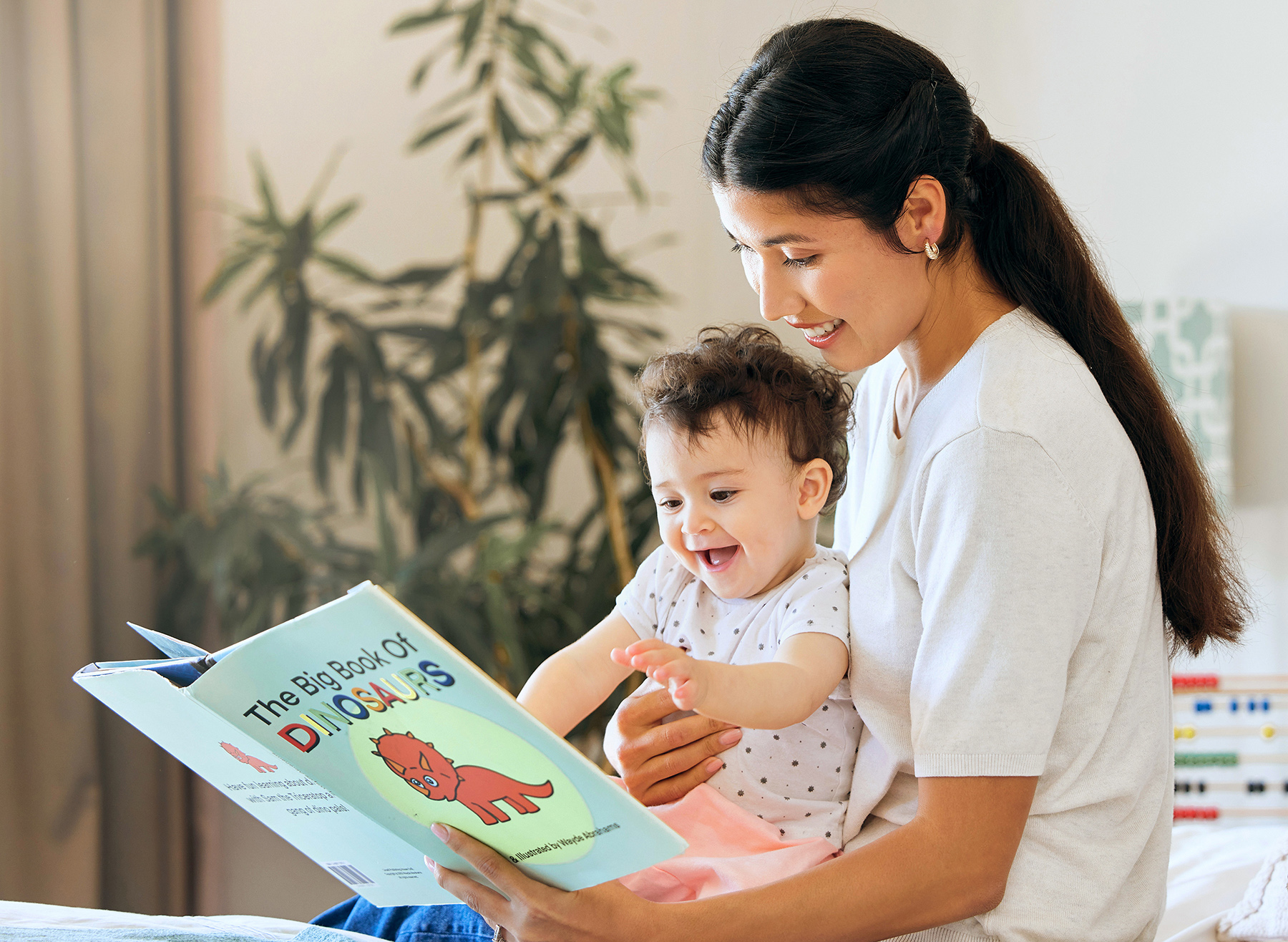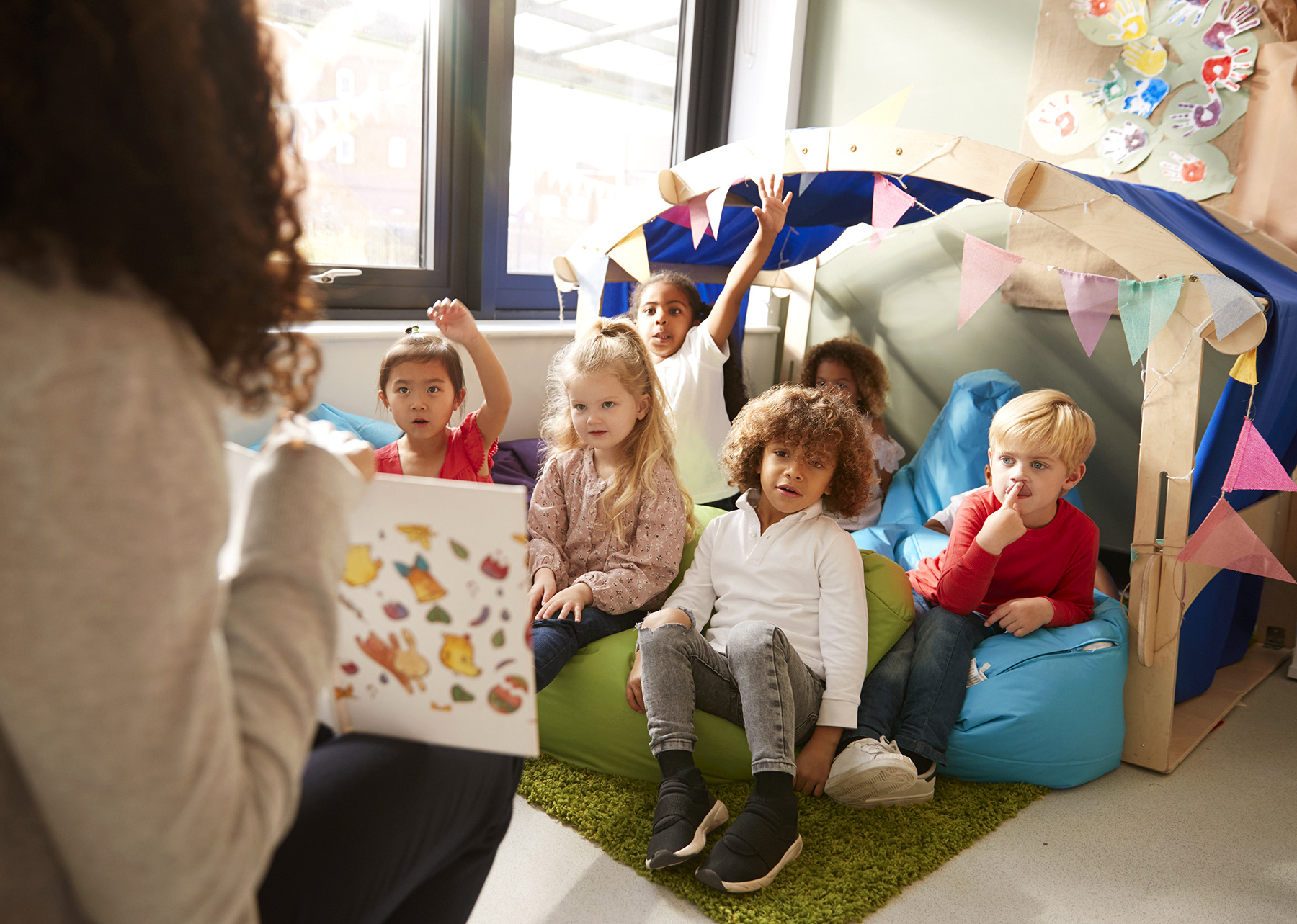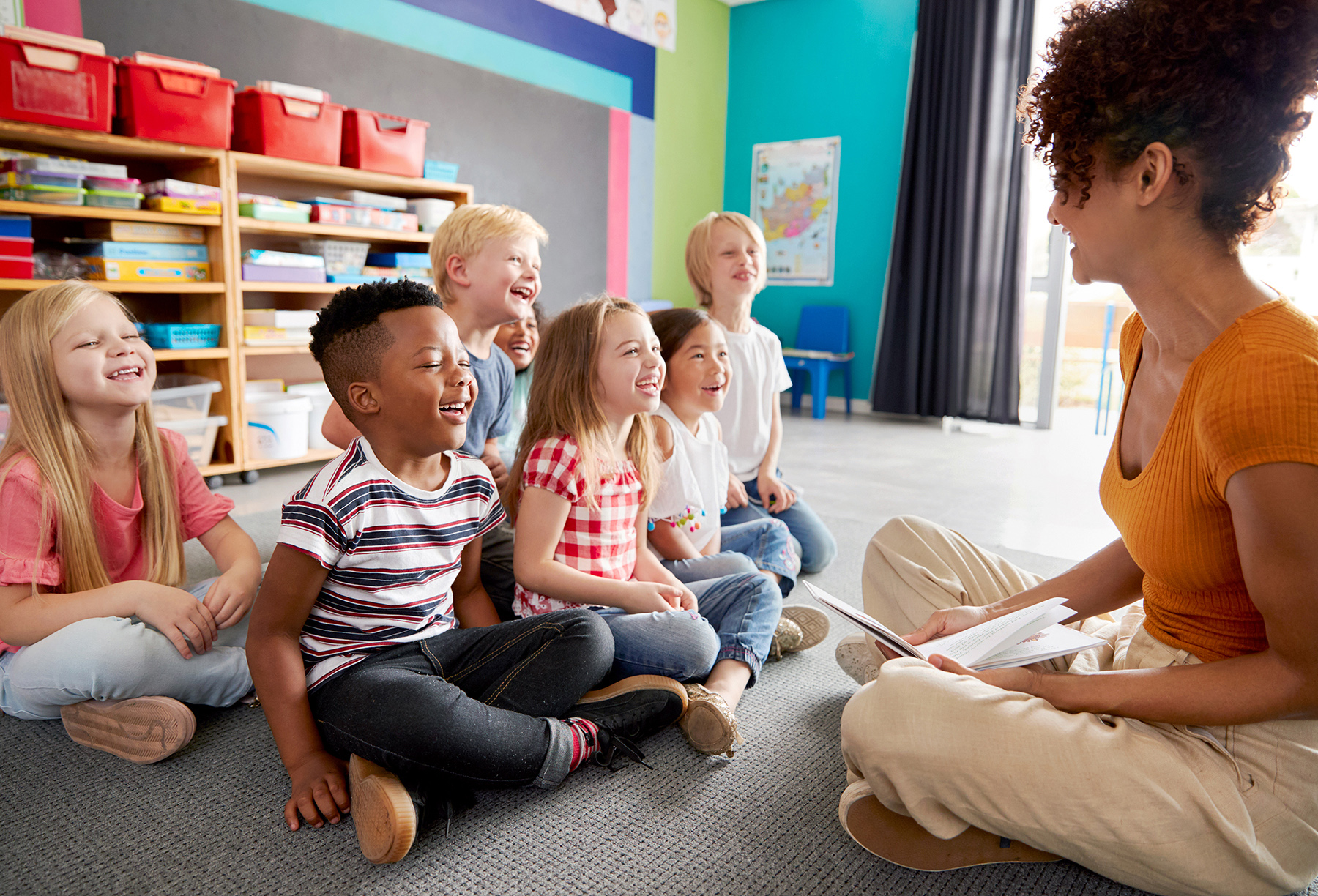
Whether you are an elementary school teacher, a homeschool educator, or a loving parent, the secret is out: you can have an incredible impact on children by reading aloud to them. In our March blog post, we take a look at ten amazing benefits of reading out loud to children of all ages, so you can create more read-aloud moments either in the classroom with your students or at home with your children. Read on to find out more.
The significance of reading aloud to children is not exactly a new concept. In 1985, the U.S. Department of Education issued a report titled Becoming a Nation of Readers to explore the increasing decline among students in reading for pleasure by the time they reached high school graduation. The study noted,
“The single-most important activity for building the knowledge required for eventual success in reading is reading aloud to children.”
It also commented,
“Reading aloud is a practice that should continue throughout the grades.”
In more recent years, researchers have studied the impact of parents reading aloud to their infants in the NICU as having both a healing and bonding effect on both parent and child.
Whether you read aloud to a baby, a preschooler, or a teenager, you can have a positive influence on a child. Here are some of the studied benefits of reading out loud to children:

When asked to recall some of their fondest childhood memories, many adults can remember positive moments in which a caregiver read a story aloud to them. Reading out loud to children is a pastime that strengthens the bond between parent and child, or educator and child. By reading out loud to your child, even for fifteen minutes per day, you create a ritual that your child will look forward to with delight—and look back on someday with affection when they grow older.
Reading stories out loud to children helps them learn to enjoy reading as a pleasure, instead of associating it only with mastering skills, acquiring knowledge, or iterating comprehension. In his New York Times bestseller, The Read-Aloud Handbook, Jim Trelease emphasizes that each time you read aloud to a child, “you are sending a pleasure message to the child’s brain, conditioning it to associate books and print with pleasure…this can undo some of the ‘unpleasures’ the child comes to associate with reading and school—hours of intensive phonics instruction…standardized testing…” and so on. Engaging children through reading aloud can help them learn to reach for books as a delight rather than a drudgery as they grow toward adulthood.

Unsurprisingly, reading aloud to children improves their literacy skills. Regular read-aloud sessions help children to increase their vocabulary, master phonics, and comprehend both the spoken and written word. The Early Childhood Longitudinal Study of 22,000 students found that “children beginning kindergarten who had been read to at least three times a week had a significantly greater phonemic awareness (phonics) than did children who were read to less often, and were almost twice as likely to score in the top 25 percent in reading readiness.” Children of any age, including babies, whose brain development is 80% complete within the first three years of life, can see an increase in literacy skills from being regularly read aloud to.
When adults read aloud to children, they provide instruction through stories about important values and life skills. Courage, honesty, love, compassion, integrity, hard work, and trust can be observed in stories read aloud and discussed even with very young children. Life skills like playing a sport, doing household chores, team work, getting along with others, and more are illustrated by relatable characters whom children can imagine as their teacher or parent reads.

According to experts at Reach Out and Read, the only national pediatric literacy model endorsed by the American Academy of Pediatrics, reading out loud to children provides numerous opportunities for healthy brain development. Even the simple act of handling books develops school-readiness in infants. Reading aloud helps children with language development, comprehension, and critical thinking skills. Healthy brain growth also encompasses positive emotional and social development, which calls to mind another benefit of reading aloud, next.
When caregivers read aloud to children, they provide a context for improving behavioral issues, a recent study finds. The “Reading Aloud, Play and Social-Emotional Development” study, published in the journal Pediatrics, observes that parents reading aloud to their children could have a sustained positive impact on behavior, curbing challenges like aggression, hyperactivity, and difficulty with attention. Reading aloud has been likened to an intervention for young children with such challenges, and the results of dedicated read-aloud sessions show promise.

Reading aloud helps to create teachable moments for young learners. A story read out loud by an educator or parent gives students a window into a scenario with real-life implications. For example, if children listen to a story in which the main character tells a lie, they get to observe the consequences of the character’s actions and think about how the same consequences might play out in real life. Stories read aloud provide an excellent opportunity for teachers and parents to teach through the example of an actual or imagined character, providing lessons that leave a lasting impression on young minds.
When children are read aloud to, they get to experience new worlds that awaken their imagination and stir curiosity. Books take all of us on journeys that far surpass what may be attainable in our limited realities. Helping children discover the wider world that awaits them through stories both real and imagined fosters an expanded understanding of life through history, fables and folklore, biographies, and more.

One of the best ways to help children build listening skills is by providing them with a rich vocabulary in the early years of child development. Parents can do this by talking with their little ones often and reading aloud to them regularly. According to Jim Trelease in the Read-Aloud Handbook, it has been long established by science and research that children who come to school with a large vocabulary do better than children who come to school with a smaller word bank. He observes that in the early years of child education, a teacher’s instructions are mostly oral. Children who have been read to by their parents have a jump-start in processing auditory information in an educational setting.
Reading aloud doesn’t just have big implications in the early years of childhood, however. Big kids benefit from read aloud time with an educator or caregiver too. Did you know that a child’s reading level does not catch up with her listening level until about eighth grade? That means reading aloud together a couple grade levels above a child’s independent reading level gives kids a chance to enjoy stories they may not be ready to dive into on their own but can comprehend very well as they listen.

Ultimately, one of the greatest goals of reading aloud to children is to create life-long readers and life-long learners. The pleasures of a reading life are many and have lasting implications throughout adulthood. From parent-child bonding and memory-making to the discovery of new worlds through excellent storytelling, the read-aloud experience is rich with possibilities for shaping little people.
We hope learning about the benefits of reading aloud to children will encourage you to embark on your own read-aloud adventures with the little ones in your life. To learn more about the benefits of reading aloud to children, as well as for actionable ideas for incorporating more reading aloud with kids, we recommend the following books:
The Read-Aloud Handbook by Jim Trelease
The Read-Aloud Family by Sarah Makenzie
The Enchanted Hour: The Miraculous Power of Reading Aloud in the Age of Distraction by Meghan Cox Gurdon
Looking for some short reading passages to read aloud with your students? Browse the Super Teacher Worksheets collection of reading comprehension worksheets for first grade through sixth grade. Find hundreds of fiction and nonfiction reading passages your students will love!
You may also like: